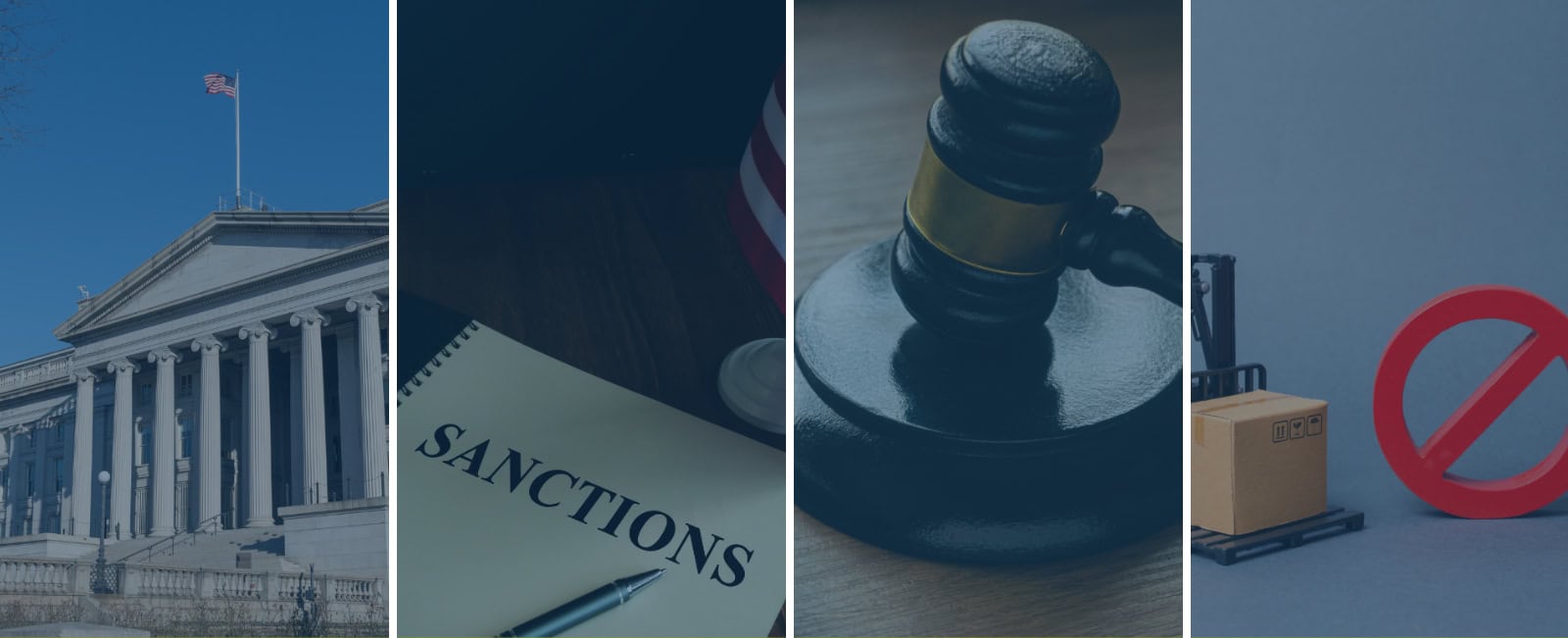New Effective Date for DEA Final Rule implementing the ITDS, March 21 2017
EASE Update: EASE will allow you to file information to DEA for import and export of tableting and encapsulating machines, controlled substances, and listed chemicals
Impact of Export Control Reform Initiative on Reporting in AES
EASE Update: EASE implements the AES changes to allow for filing of “600 series” ECCN
The “600 series” ECCNs were added to the AES ECCN Reference Table. Some of the “600 series” ECCNs are eligible for certain license types. If the “600 series” ECCNs are reported under any other license type, AES will generate a fatal error -FATAL ERR 666-ECCN MUST BE FROM APPROVED LIST.
Details provided as follows:
-
- C30 (BIS license), C40 (TMP), C41 (RPL), C42 (GOV), and C59 (STA) – All “600 series” ECCNs listed above are eligible to the extent permitted under part 740 of the EAR.
- C33 (NLR) – All “600 series” ECCNs listed above are eligible only if exported to Canada. Some of these “600 series” items were previously authorized under an International Traffic in Arms Regulations (ITAR) Canadian exemption (SCA).
- C35 (LVS) – The following “600 series” ECCNs are eligible: 1B607, 6B619, 7A611, and 7B611.
- C44 (TSU) – The following “600 series” ECCNs are eligible: 1D607, 1E607, 6D619, 6E619,7D611, and 7E611.
Items subject to the EAR, including “600 series” ECCNs that are licensed by the State Department under ITAR
State Department may license an item subject to the EAR on an ITAR license pursuant to new section 120.5(b) of the ITAR. If this occurs, the AES filer must report the ECCN (including “600 series” ECCNs) or the EAR99 designation in the ECCN field in AES, even if the license type is S05 (DSP-5). All other fields associated with license type S05 are required, such as registration number, significant military equipment indicator, DDTC eligible party certification indicator, USML category code, DDTC unit of measure and DDTC quantity.
Documents Required to determine duty free exemption under Subheading 9801.00.10- U.S. and Foreign Goods Returned
EASE Update: EASE will validate that you have proper documents before your file for duty-free exemption under 9801.00.10.
- For either UMG or FOG (for formal entries valued over $2,500 only): Declaration by Foreign Shipper indicating that the products were not advanced in value or condition while outside the United States. A certificate from the master of a vessel stating that the products are returned without having been un-laden from the exporting vessel may be accepted in lieu of the declaration by the foreign shipper;
- For UMG (for formal entries valued over $2,500 only): for U.S. goods formally entered that are not clearly marked with the name and address of the U.S. manufacturer, CBP may require a Manufacturer’s Affidavit confirming that the articles were made in the United States;
- One of the following documents will be deemed sufficient proof of export from the U.S. for UMG or FOG, provided the information contained therein proves an export from the U.S.:
- Copy of the entry into the foreign country;
- U.S. export invoice or bill of lading/airway bill; or,
- Electronic Export Information (EEI) or the Automated Export System (AES) filing exemption.
- For aircraft and aircraft parts and equipment returned to the U.S. by or for the account of an aircraft owner or operator and intended for use in his own aircraft operations, within or outside the U.S., a CBP Form 3311, or its electronic equivalent may be used as stated in 19 CFR 10.1.
- For U.S. origin goods that were originally exported under a DOS license that are now being re-imported, formal entry is required regardless of value along with the DDTC PGA message set.
- For U.S. manufactured aircraft returning to the United States, that were sold to a foreign government under the Foreign Military Sales Program, formal entry is required if any maintenance is being performed on the aircraft while in the U.S. The repairs have to be authorized via a specific case line in the LOA.
- At the time of export of the aircraft, the EEI has to be filed for the maintenance of the aircraft.
- For U.S. manufactured aircraft returning to the U.S. that were sold to a foreign government under the Foreign Military Sales program, where modifications or enhancements will be made to the aircraft, then the following is required for the import and subsequent export of the aircraft:
- Formal entry is required.
- At the time of export, the EEI submission is required, citing the Directorate of Defense Trade Controls export license (DSP-5).
DIS Images of ATF Forms no longer accepted
EASE Update: EASE now allows importer to file ATF information electronically.
Effective immediately, importers filing ATF information electronically through ACE are required to use the PGA Message Set. DIS images of ATF Forms, including Form 6 and 6A, will no longer be accepted. When the PGA message set is filed correctly, the importer will receive an automatic “May Proceed” from ATF, and if there are no further issues, the shipment will be released. Please note, original paper ATF Forms 6 and 6A may also be submitted to the ports of entry.
For requirements of PGA Information in ACE & methods for Import Data Submission follow the source
Source
LICENSING & PERMITS
DSP-83 no longer required to accompany a license application for permanent export of Chemical Agent Resistant Coatings (“CARC”)
EASE Update: EASE Update Not Required
DDTC determined that CARC paint does not possess a substantial military utility or capability as defined by SME (22 C.F.R 120.7(a)) and therefore a DSP-83 is not required to accompany a license application of the defense article. As a result of a multiagency review of export controls and the implementation of Export Control Reform (ECR), CARC paint was reassigned as category XIV(f)(7) on the USML. When submitting a DSP-5 via D-Trade, the selection of any SME category in block 11 automatically identifies the defense article as SME and makes the DSP- 83 a mandatory required document. Follow procedures below to submit your application without the DSP-83:
- Enter “XIV(f)(7)” in Block 11
- When asked if a DSP-83 is attached – answer “NO”
- When further asked “If SME, and a DSP-83 is not attached, state why.” – answer “Updated DDTC Web Notice 2/22/17 ref: no DSP-83 for CARC.”
- Please do not attach a copy of the web notice
DENIED PARTIES & SANCTIONS
Updates
EASE Update: Clients need not worry about the newly added individuals and entities as these are updated daily in EASE and clients may download these lists automatically
| Individual and Entity Names | Source | |
| (OFAC) has sanctioned multiple entities and individuals involved in procuring technology and/or materials to support Iran’s ballistic missile program, as well as for acting for or on behalf of, or providing support to, Iran’s Islamic Revolutionary Guard Corps-Qods Force (IRGC-QF) | Abdollah Asgharzadeh, East Star Company and Ofog, Sabze Darya Company, Tenny Darian, Ali SharifiRichard Yue, Cosailing Business Trading Company Limited, Jack Qin, Ningbo New Century Import and Export Company, Ltd, Carol Zhou, MKS International,
Kambiz Rostamian, Rostamian, Ervin Danesh Aryan Company and Mostafa Zahedi, Mohammad Magham Ghodrat Zargari and Zist Tajhiz Pooyesh Company Hasan Dehghan Ebrahimi Reem Pharmaceutical, Mirage for Engineering and Trading, and Mirage for Waste Management and Environmental Services |
Source https://www.treasury.gov/press-center/press-releases/Pages/as0004.aspx |
| (OFAC) designates as a Specially Designated Narcotics Trafficker pursuant to the Foreign Narcotics Kingpin Designation Act (Kingpin Act) for playing a significant role in international narcotics trafficking | Venezuelan national Tareck Zaidan El Aissami Maddah (El Aissami), Venezuelan national Samark Jose Lopez Bello (Lopez Bello), 13 companies owned or controlled by Lopez Bello or other designated parties that comprise an international network spanning the British Virgin Islands, Panama, the United Kingdom, the United States, and Venezuela Five U.S. companies owned or controlled by Lopez Bello and/or MFAA Holdings Limited. These entities are the following limited liability companies registered in Florida: 1425 Brickell Ave 63-F LLC; 1425 Brickell Avenue Unit 46B, LLC; 1425 Brickell Avenue 64E, LLC; Agusta Grand I LLC; and 200G PSA Holdings LLC. Additionally, a U.S.-registered aircraft with the tail number N200VR has been identified as blocked property owned or controlled by 200G PSA Holdings LLC. |
https://www.treasury.gov/press-center/press-releases/Pages/as0005.aspx |
OFAC ENFORCEMENT
OFAC Issues a Finding of Violation to B Whale Corporation (BWC), for Violating the Iranian Sanction Regulations
BWC violated §§ 560.201 and 560.211 of the ITSR when its vessel M/V B Whale, conducted a ship-to-ship transfer and received 2,086,486 barrels of condensate crude oil from vessel M/T Nainital, a vessel owned by the National Iranian Tanker Company (A company identified on OFAC’s SDN List). The transactions occurred after BWC entered bankruptcy proceedings in a U.S. Bankruptcy Court. OFAC determined that BWC was a U.S. person within the scope of the ITSR because it was present in the United States for the bankruptcy proceedings when the transaction occurred. Additionally, the vessel M/V B Whale was subject to U.S. sanctions regulations because it was property under the jurisdiction of a U.S. bankruptcy court therefore the oil transferred to the vessel was an importation from Iran to the United States as defined in the ITSR.
OFAC considered the following to be aggravating factors: (1) BWC demonstrated reckless disregard for U.S. sanctions requirements while the company and its vessel were subject to U.S. jurisdiction; (2) BWC took steps to conceal a ship-to-ship transfer of Iranian oil with an Iranian vessel on the SDN List, including by leaving ship logs blank and switching off the vessel’s automatic identification system during the time period corresponding with the ship-to ship transfer; (3) BWC knew or should have known that this transaction involved Iranian-origin oil and an Iranian vessel on the SDN List; and (4) this transaction provided a significant benefit to Iran because it allowed condensate crude oil from an Iranian vessel identified on the SDN List to be transported to a market in a manner that concealed its origin.


